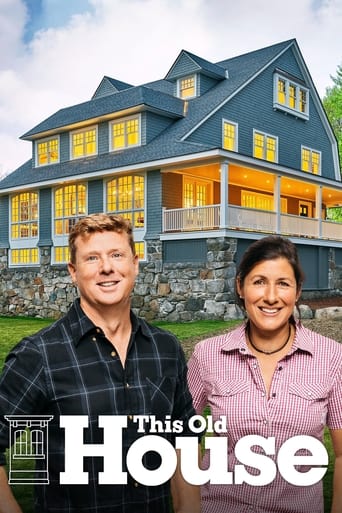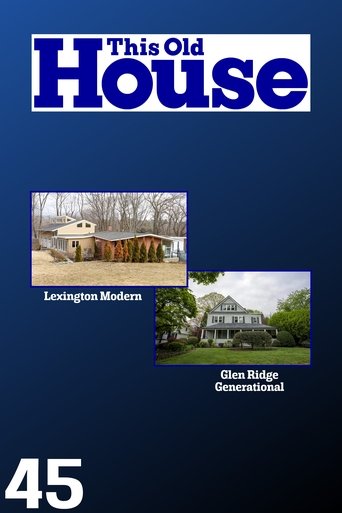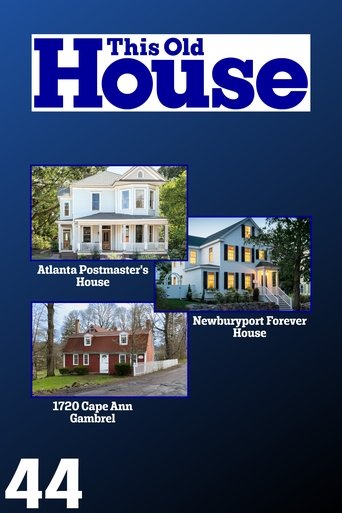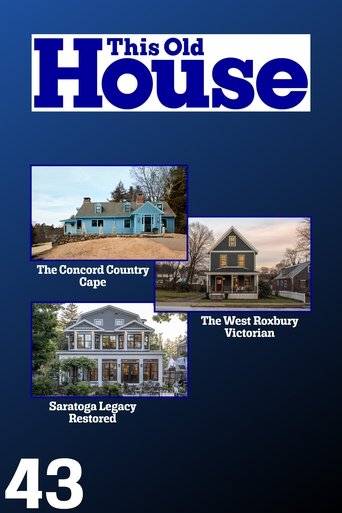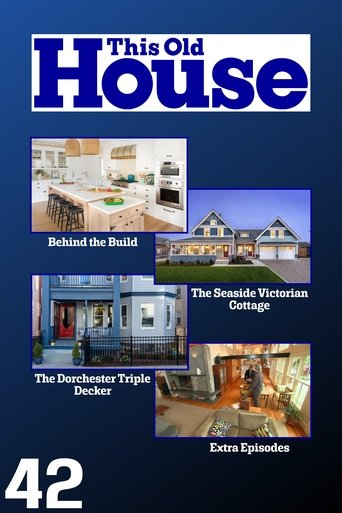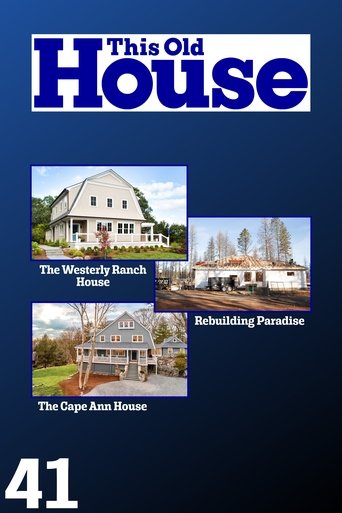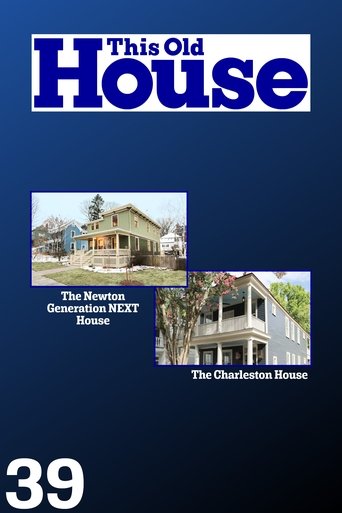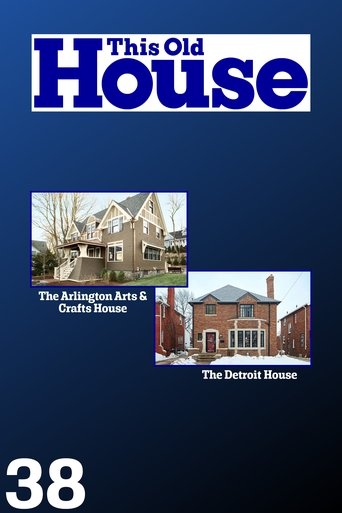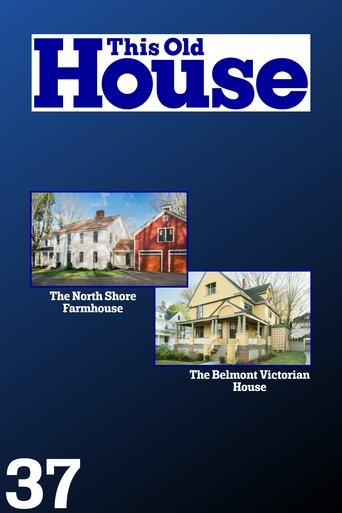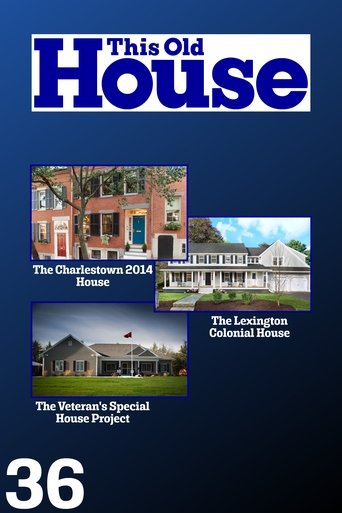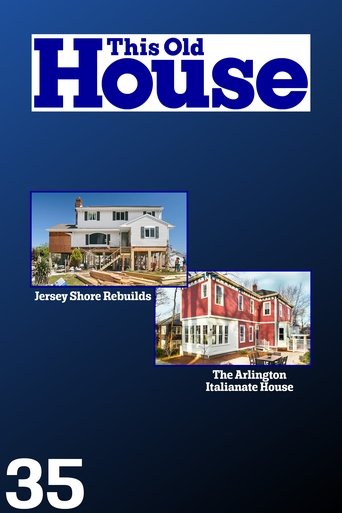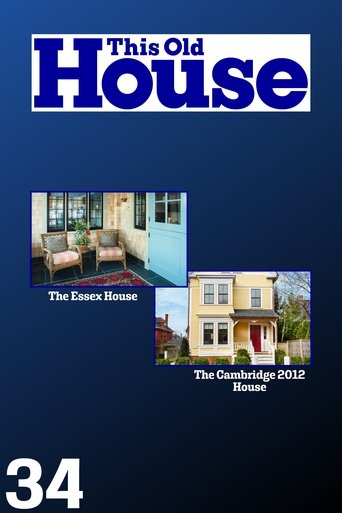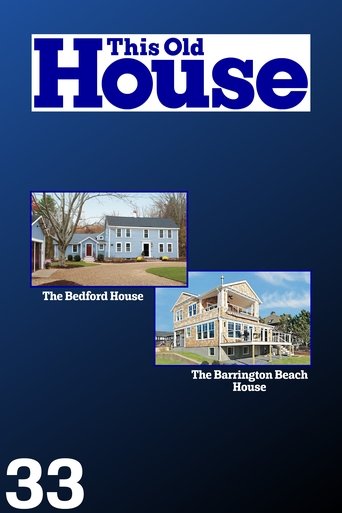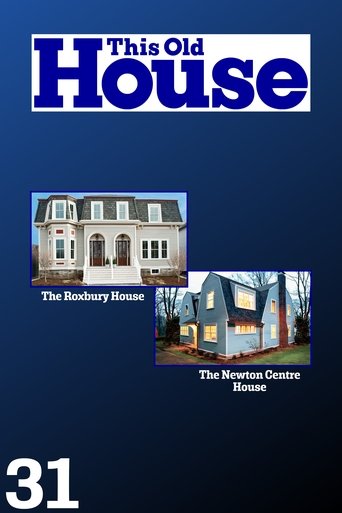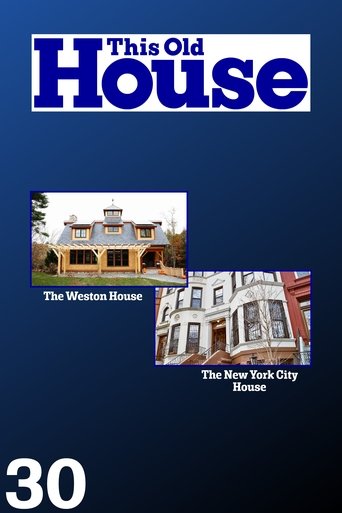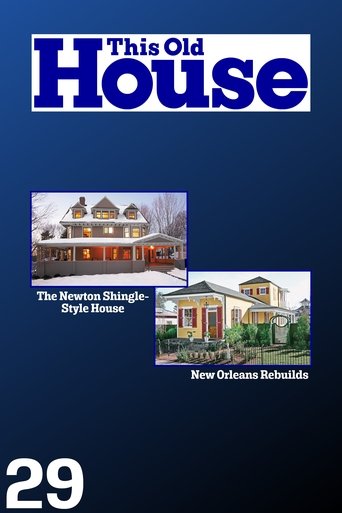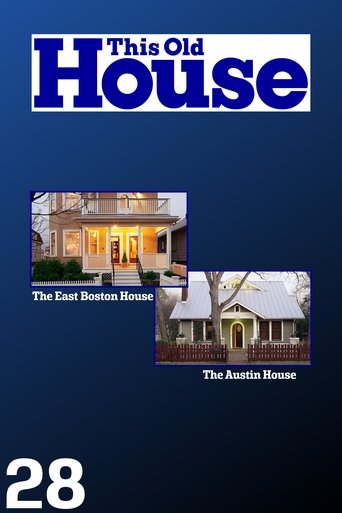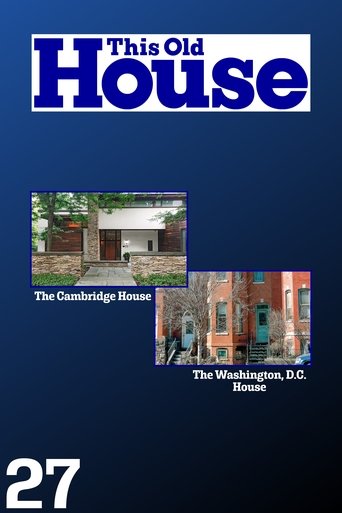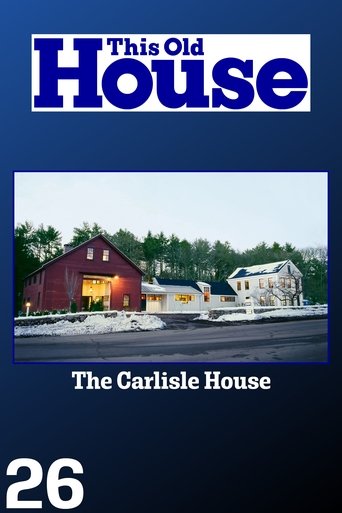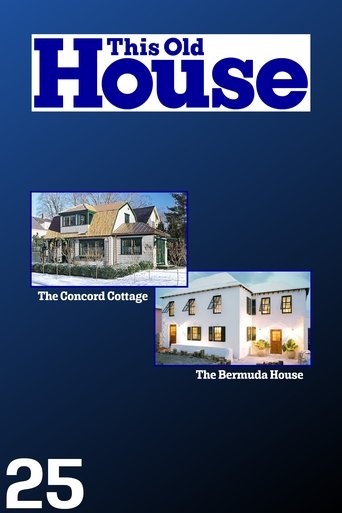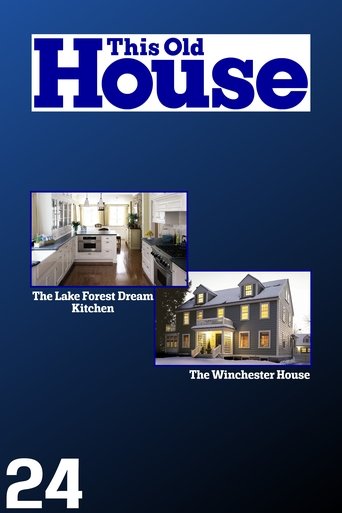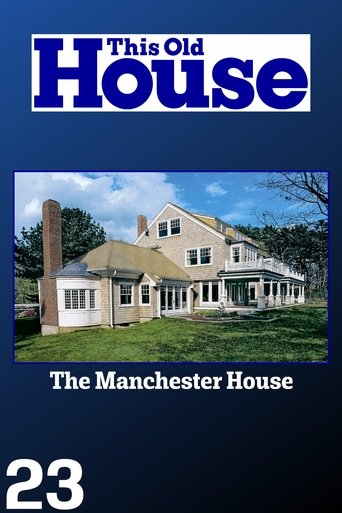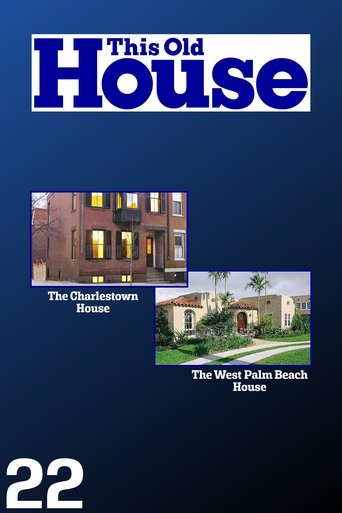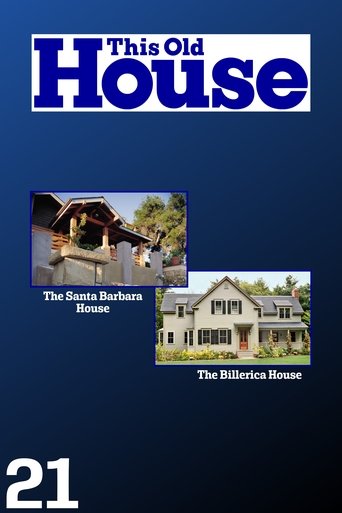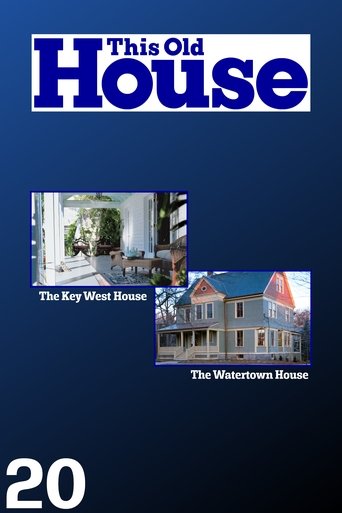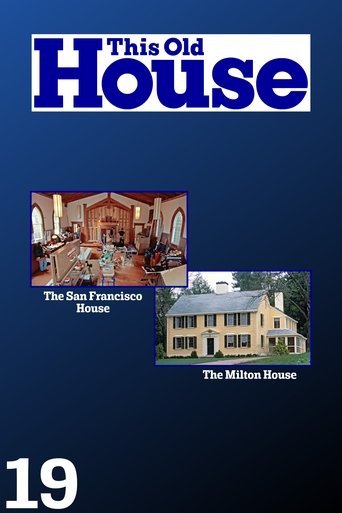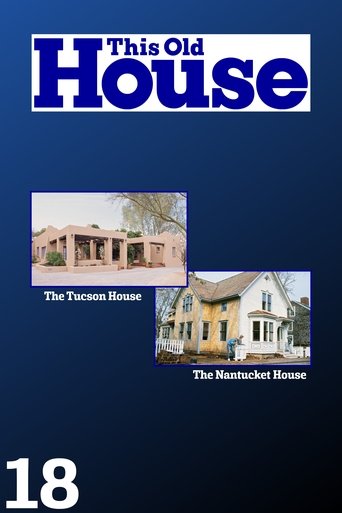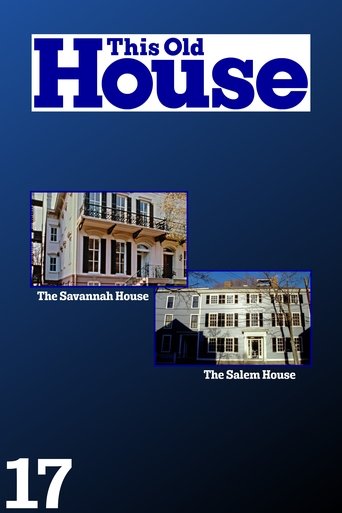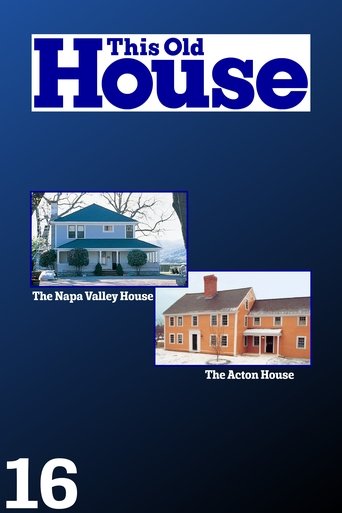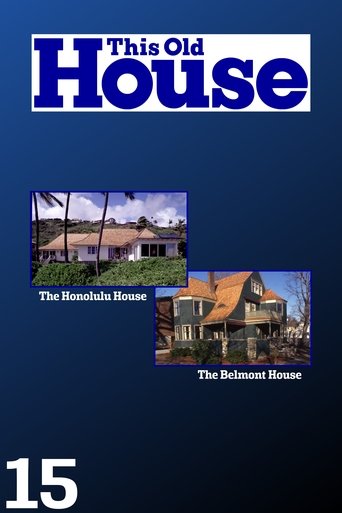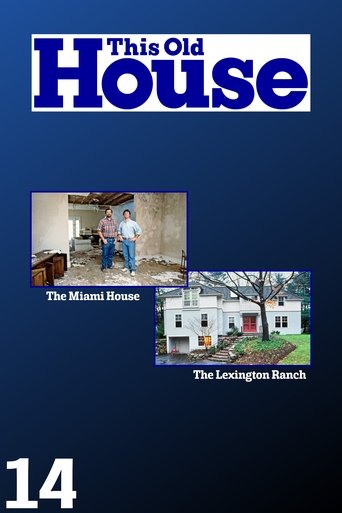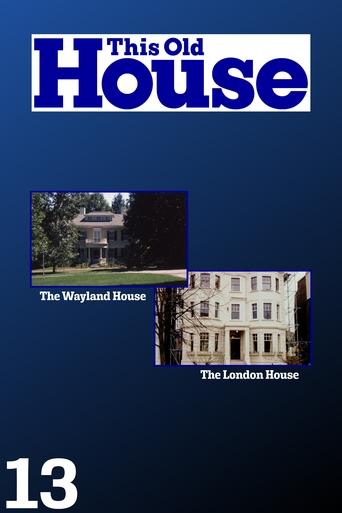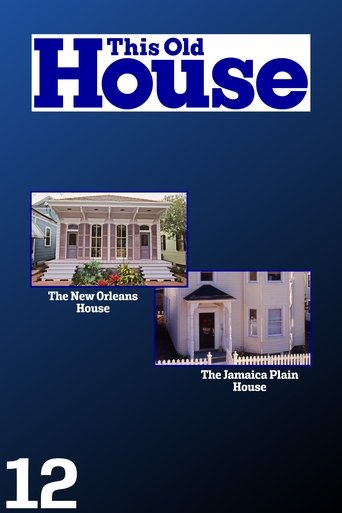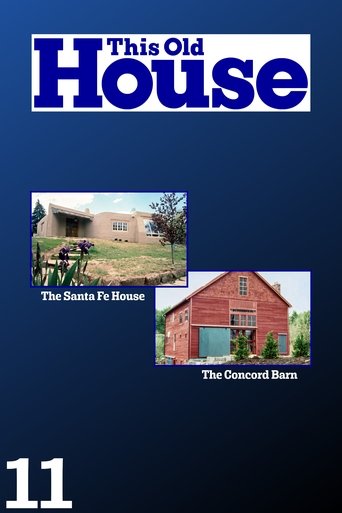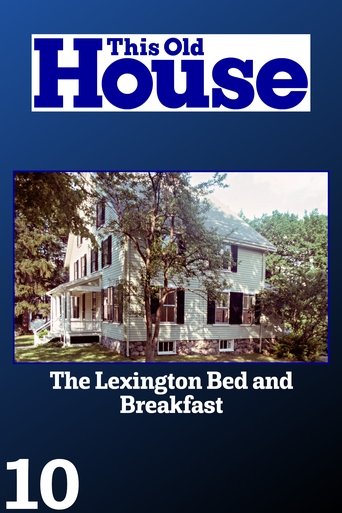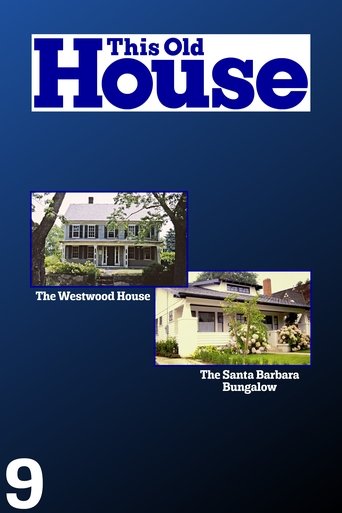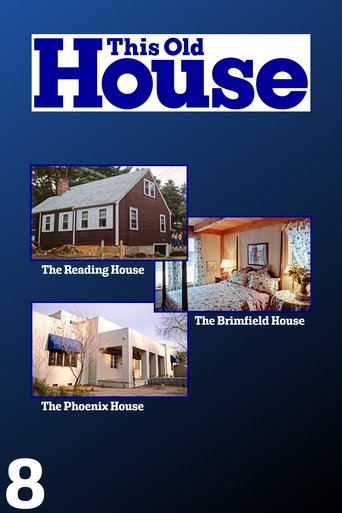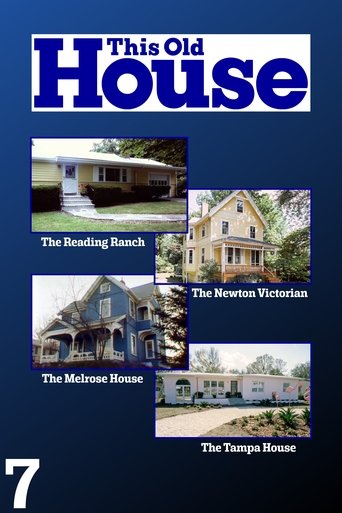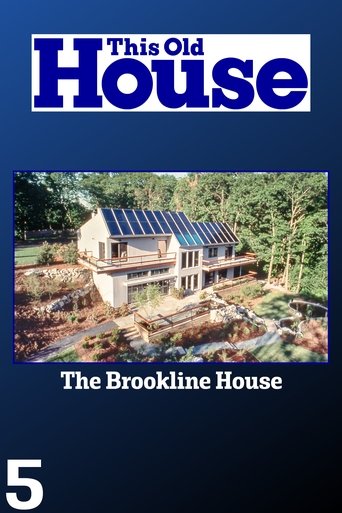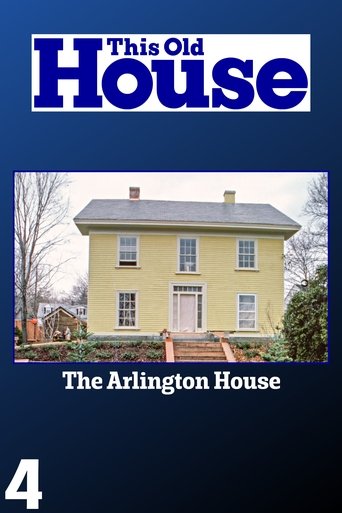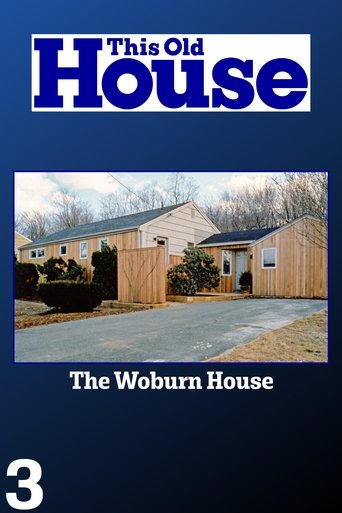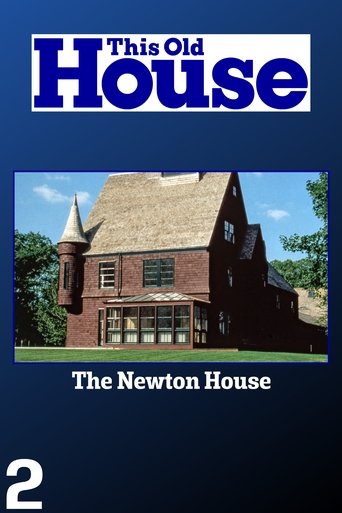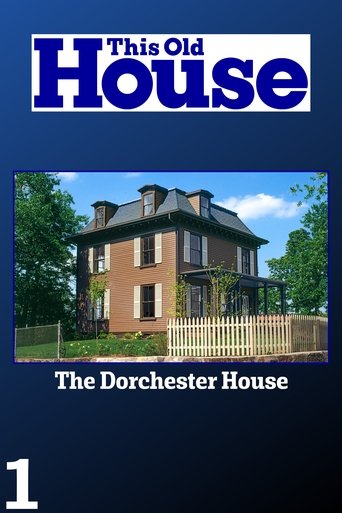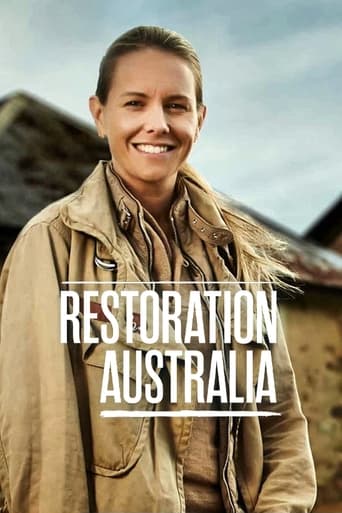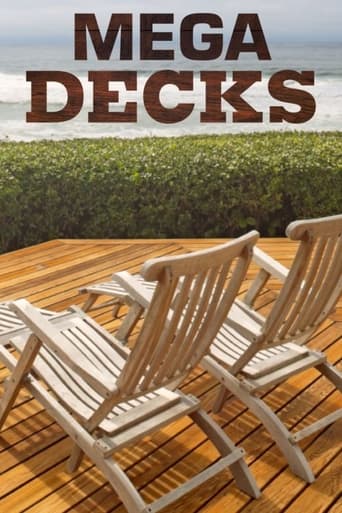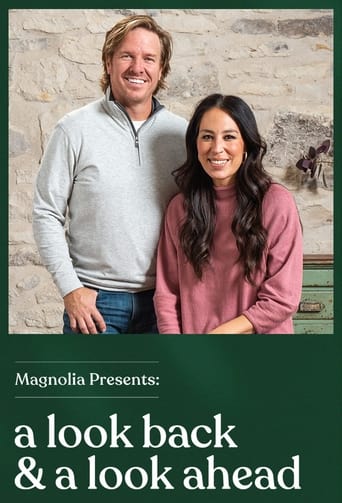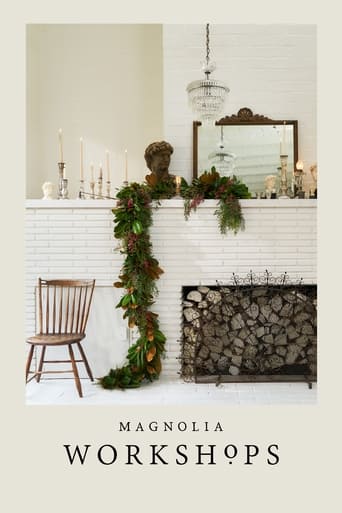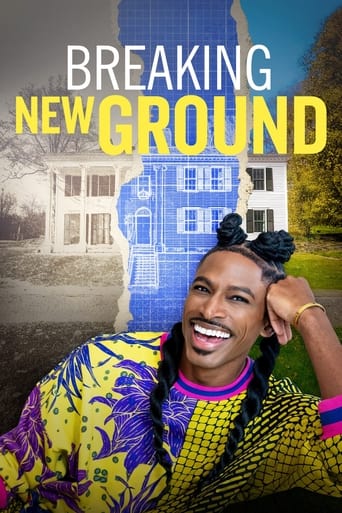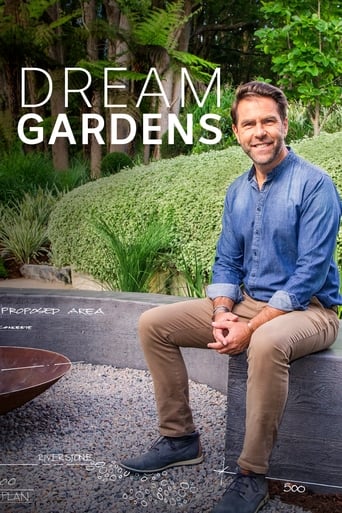This Old House Season 20
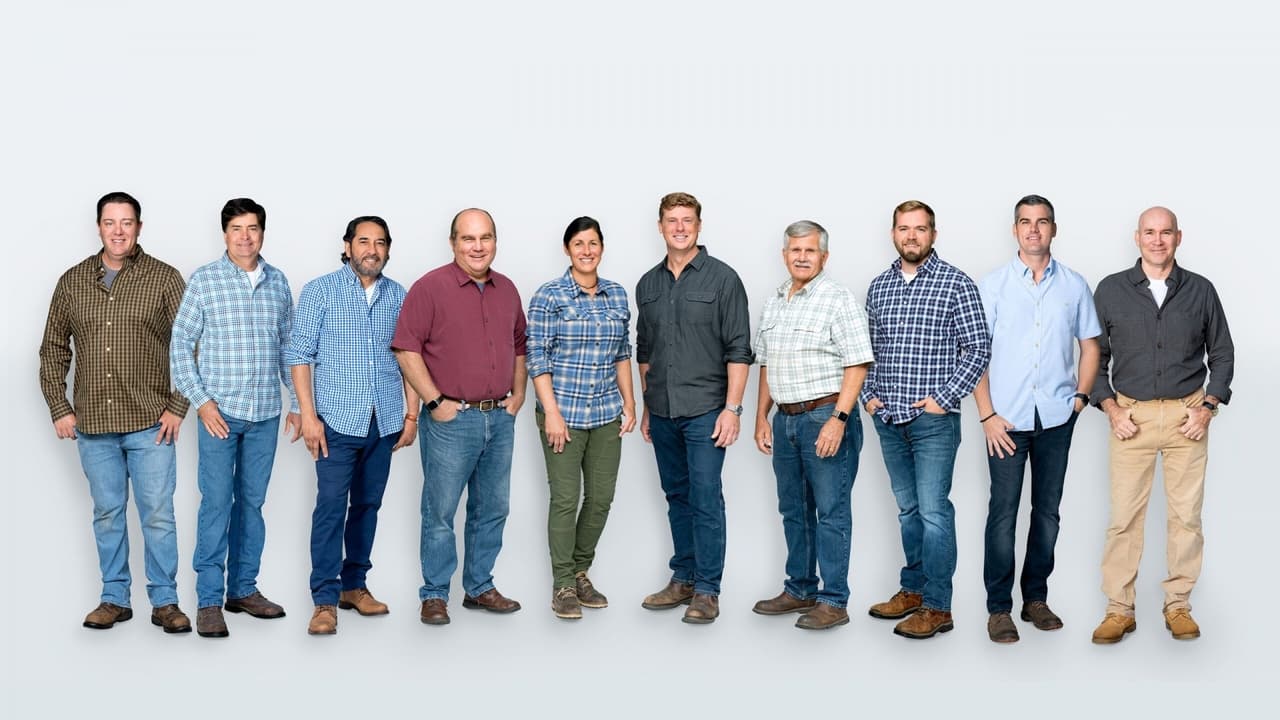
TV's original home-improvement show, following one whole-house renovation over several episodes.
Watch NowWith 30 Day Free Trial!
This Old House
1979 / TV-G


The Watertown House; The Key West House
Watch Trailer
With 30 Day Free Trial!
This Old House Season 20 Full Episode Guide
On our last day in Key West, viewers get a look at the new pool, its cleaning system and the heat pump that both heats and cools it. (Key Westers have to chill down their pools during the brutal summers.) Inside, we see the handiwork of tileman Tom Lapp, who is putting the finishing touches on a beautiful entryway of black and white, concrete Cuban tiles. Outside, painter Perry Fergus and crew are using a latex topcoat for the house's body and trim, and a high-gloss oil for the new shutters. Vierers then visit the local shop where they were made. Back at the house, lead carpenter Bev Horlick installs the first of several mahogany French doors made by the same shop, using heavy brass hinges and tarnish-proof handles. Our host checks out the new lanscaping with contractor Mari Blair, who has used a variety of native plants, an irrigation system and low-voltage lighting. Our master carpenter agrees with homeowner Michael Miller that rushing the cabinetry in the library is not a good idea,
Just as they're getting used to all the sunshine, the crew realizes it's almost time to wrap up the Key West project. The activity on site is intense. Window installer Charles Malta reviews the options in balancing the traditional sash he's installing - vinyl with springs, tube, tape and good old prop sticks. We see the Italian-made kitchen going on in and admire its style, mechanics and ease of installation. Afterward, the molded urethane window trim is applied in the dining room. In the library, we see the first of the cabinets to arrive from Savannah and then take a tour of an exquisitely restored and furnished Key West ""eyebrow"" house. Back on site, the flooring contractor inlays the river-recovered heart pine floor with a diamond pattern of rare curly pine. With a thunderstorm quickly approaching, we watch v-crimp metal roofing go on the new rear roof. Watch and learn: How to install metal roofing.
The show opens at Key West's biggest industries - cruise ships. The This Old House team takes a tour of Carnival's Ecstasy, in port for the day. Back at the house, a glazier cuts and beds restoration glass - mouth-blown, like glass from the 1800s - in the new replacement sash. Outside, lead carpenter Bev Horlick and crew use 3"" x 4"" rafters to frame up the new porch roof, a crew sprays concrete to form up the new pool. Then we take a ride up to Savannah, Georgia, to tour the millwork sohp that is building the library cabinets to homeowner Michael Miller's specifications. The show ends with us checking out the new skylight. Watch and learn: Building fine cabinetry and considerations for insulating island homes.
The show opens at Truman Annex, a planned community on land that was formerly Key West's naval station. Later in the show, we tour another planned community, the town of Celebration, with archtect Graham Gund. A Disney venture, it was built from scratch over the last four years, with the participation of some of the world's best-known architects. Back at the project house, Roger Townsend shows us the fully framed great room and the nearly complete rough plumbing and electrical work, as he awaits inspections before the insulation crew arrives. Homeowner Michael Miller finally makes his decison about the back porch: take it down and rebuild it in a style more in keeping with the rest of the house. Finally, we check out lap-siding Key West-style, and the foam insulation, another island first, starts to go in. Watch and learn: Porch construction and building and commuinty development.
The show opens at one of Key West's most popular destinations, Harry Truman's ""Little White House,"" where the President visited for many years after having originally been sent to the island to recover from a severe cold and exhaustion. Our heating and plumbing expert gives HVAC contractor Charle Roberts a walk-through of the high-velocity, flexible-duct air conditioning package, making its debut in Key West. Out back, pool excavator Ray Vanyo continues to struggle with the challenge of working in a confined space. Back at the jobsite, homeowner Michael Miller shows us his plans for the new library. Finally, our four Northerners sneak off to watch the sailboats battle it out in the Key West Race Week heats. Watch and learn: Innovations in water conservation.
After catching the famous Mallory Square sunset the evening before, the This Old House team gets to work, first checking in with general contractor Roger Townsend to see the jobsite's progress while our master carpenter visits the local lumberyard to look at some of the building materials Key Westers use to beat the elements and stay true to local architectural traditions. Homeowner/architect Michael Miller takes us on a tour of one of his projects, and old Conch cottage converted into a library and guest room. Its porch is quintessential Key West - tongue-and-groove painted decking, simple columns, full dimension exposed rafters and beadboard ceiling - and serves as a model for what Michael and Helen want to do to their back porch. Back on site, excavator Ray Vanyo starts digging the pool, only to come across a buried cistern and a floating piece of Key West History. Watch and learn: The best materials to build with in semi-tropical and hurricane-prone climates.
Our host and master carpenter find paradise at the end of the famed U.S. Route 1 - Key West, Florida. Along the island's back streets they discover their latest renovation challenge, a Conch captain's house built by a shipwright in 1866. Over the course of seven new episodes, they will team with homeowner Michael Miller, who will also serve as the project's architect, to expand the vintage structure and refine its interior and exterior details. Watch and learn: A history of Key West architecture of embodied in the subject house.
The final days of the Watertown project start with Richard Trethewey's tour of the completed kitchen, complete with stainless-steel cleanup sink, the completed baths, and the laundry. We get a lesson in wallpapering from expert John Gravallese. Hint #1: use a ton of single-edge razor blades. Decorative painter Julia Purinton and her crew show us their two-tone striped wall treatment in the guest bedroom. Craftsmen install a restored stained-glass panel in the front door and a brand-new one in the front wall. Lighting designer Doreen Le May Madden shows us the finished lighting package in the kitchen - including a dimmable fluorescent ceiling fixture - and the dining room, and Christian prepares some hors d'oeuvres in his new kitchen. We check out Susan's new office, where she's using a high-speed cable modem to surf the internet, including the new This Old House and New Yankee Workshop sites, and moves on to find Steve Hayes setting up the media room with some new, adjustable and tunab
Our host arrives to find Roger Cook and crew installing sod on the front lawn, while inside painting contractor Steve Kiernan gives him a lesson on proper prep and priming in the media room. The crew install the commercial-style hood over the cooktop in the kitchen. Our host continues the finishes tour by observing the decoratitive painting techniques of Iris Marcus, who is putting up a ""silk moiré"" pattern on the walls of the dining room. Our host takes us to see the other hand of the house's security system, visiting a central station that monitors houses and businesses across New England, while our master carpenter checks in with the closet system installers, who are working with a custom product made in Italy. We find electrician Allen Gallant working of the fiber-optic equipment that supplies light to the oak stairway. Finally, termite man Steve Marken injects a blanket of protection around the building's perimeter to insure that all the fine renovations will remain bug-free.
Our host arrives on site to find the building's exterior nearly complete: the new paint scheme is on, the copper gutter system is complete, and Tommy and crew have finished the front porch, from copper shingle roof to new front steps. Roger Cook and his crew are putting in a rice-stone front walk and garden path, leading to the formal herb garden at the house's south side. Inside, the big story is the arrival and installation of the kitchen cabinets. We visit the custom shop where they were made. In the front hall, finishes expert John Dee shows us how he is matching the old, stripped oak of the central staircase to the new oak of the wainscot, using different shades of traditional shellac. Upstairs, Joe Ferrante installs a complex pattern of marble tiles in the master shower, while the crew reassemble the scattered pieces of the central balustrade, handrail and newel posts.
The This Old House team shop for lunch supplies at Eastern Lamejun Bakery, one of the oldest Middle Eastern grocery stores in the counrty. (The Watertown area is home to one of the largest Armenian populations in the country.) At the jobsite, Augustin Crookston and crew install copper gutters and downspouts as homeowners Sue Denny and Christian Nolen sift through the dumpster for some expensive mosaic tiles that were mistakenly thrown out during a jobsite clean up. We visit a larger-scale mine, the Kennecott Utah Copper facility in Salt Lake City, to see the complex process by which pure copper is extracted from ore. Back at the jobsite, floorman Pat Hunt and his crew restore the house's original quartersawn oak flooring and install new material that matches. Finally, the crew install the quartersawn oak wainscot that our master carpenter made in the New Yankee Workshop.
A huge drywall goes in under the front lawn to handle water pumped out of the basement slump, and chimney specialist Mark Schaub and crew shows us the newly ""Rumfordized"" front parlor fireplace and the cast iron Victorian fireplace inserts they've installed in the dining room and in Sue's office. Homeowner Sue Denny uses a biodegradable stripper to remove built-up varnish from the old oak doors, while Tom and our master carpenter fabricate new fluted post and replica goosenecks for the house's porches. The new copper shingle system is being installed on all the porch roofs.
The show opens with a plumbing and heating tour of the basement, with stops at: a pressure-reducing valve that steps down the incoming water pressure from 110 psi to a more useful 65 psi; no-hub cast iron waste lines; two-burner high-efficiency boiler; and a topnotch ducting job that interfaces with an air handler, humidifier and electrostatic air cleaner. Upstairs, the terrazzo floor is polished. Our team istalls a new window with guts of wood fiber and resins, a wood veneer interior and vinyl-clad exterior. Lighting designer Doreen Le May Madden takes us to a nearby lighting showroom to see what she has come up with for homeowner Sue Denny. Among the surprises is a fiber-optic lighting package.
Exterior painting by Steve Kiernan and crew is underway out back, as is the erection of a white cedar combination fence and trellis along the driveway. In the kitchen, Fred Morgan explains to us the ancient process of terrazzo flooring, with a modern twist: instead of concrete, epoxy is used. Drywaller Mike Couillard shows us a tiler backing board, that unlike cementitous board, can be worked with regular drywall tools, as well as 56"" wide drywall sheets that eliminate a seam when used in high-ceiled rooms such as ours. In the basement, Bill Clayton takes us through the perimeter drain and sump system his company has installed to deal with the flooding the house suffers during heavy rains. Roger Cook and crew unload trees and shrubs from a local nursery and begin sitting them around the yard. Finally, our host gets a lesson in granite work as Lenny Belliveau completes the foundation's stone veneer.
A busy day on site: the back decking is coming along with a new undermount system. The insulation crew is hard at work inside spraying on foam insulation. Up top, Mark Schaub and his crew prepare to line the chimneys with a concrete lining poured down around bladders in each of the flues, and in the backyard, Dick Washburn shows us a unique dipping tank for stripping one of the house's old mantles of paint. In the relative quiet of the workshop, our master carpenter is fabricating a quartersawn white oak raised-panel piece for the bottom of the stairway. Finally, mason Lenny Belliveau works on the newly arrived pink granite blocks for veneering the foundation at the front of the building.
The This Old House team installs a zero-clearance fireplace with a handsome cast-iron firebox. Window rehabilitation specialist David Liberty shows us his method of refurbishing the building's existing windows using old-fashioned, long-lasting materials. Show friend George Putnam works with a new stripping chemical to relieve the decorative carving on the front gable of its layers of paint, while our host visits the new owners of last season's home, the 1724 Colonial in Milton, Massachusetts. Our master carpenter checks in with a/v specialist Steve Hayes as he pulls ""futureproof"" wiring bundles through the walls and back to a central switching box. Finally, custom cabinet maker Ted Goodnow and homeowner Sue Denny shows us the progress they've made towards finalizing the kitchen's look.
Roger Cook and Christian Bilodeau plant 30-foot evergreens as a screen in the backyard, using Christian's tree spade. Tom updates us on the project's progress: termite damage has necessitated replacement of all three porches, rough wiring is well underway, and rough plumbing has already been inspected. Out on the front lawn, homeowners Christian and Sue put a first coat of finish paint on some of the 8000+ new red cedar shingles and shows us the historically accurate new paint scheme: light olive for the body, straw for the trim, and a pumpkin red for the decorative shingling and window sash. Electrician Allen Gallant links the house up with the live Boston Edison service from the street, while the crew cut through the roof for the new sklight. Finally, we visit the granite quarry and finishing yard where new pink granite blocks are being prepped for use on the front part of the Watertown house's foundation, matching the rest of the granite around the sides and back of the building.
Entomologist and pest control contractor Steve Marken takes us on a termite-damage tour of the house, pointed out the conditions that led to the original infestation. Out back, Roger Cook shows us the drywell and drainage pipe system he's installed to handle the water problem. The This Old House team work with excavator Jim McLaughin as they try to pull out the old galvanized water service, with a new copper pipe attached to the end, to replace the old pipe without having to dig up the front lawn. Homeowners Sue Denny and Christian Nolen experiment with exterior paint colors on the side of the building - our host advises them to consult with historic paint expert Andrea Gilmore. Inside, homeowner Christian learns the effect, or lack thereof, of the skylight he's considering installing over the central stairway.
A Dig Safe representative is on site to explain the nonprofit organization's function: to notify all utilities of impending excavation so that they can mark buried lines. Out back, Roger Cook and crew remove topsoil to begin the digging of a massive drywell that will hopefully control the water that drains from surrounding yards onto the property during rainstorms. The team review the extensive termite damage to the front sill; to replace it, they need to jack the balloon-framed wall above it - no easy task, since the floors are not really attached to the wall studs in this type of construction. Meanwhile, Christian and our host take a tour through the mocked-up kitchen, where Christian is asked a few pointed questions about the design.
The show opens with a walk along a newly restored natural corridor lining the banks of the Charles River in Watertown. The result of years of hard reclamation work by the Metropolitan District Commission, it forms part of an unbroken systems of walk and bikeways stretching from the mouth of the river west to Waltham. Back at the house, the crew opens up a water-damaged corner of the building to find rot, carpenter ants, and termites, Homeowner Christian Nolen is presented with a plan to heat and cool the building efficiently, while still using the existing ductwork. Our host visits the Browne House, circa 1690, the oldest house in Watertown, and one of the first restoration efforts by the Society for the Preservation of New England Antiquities. At the site, historic preservationist Andrea Gilmore explains the architectural features that make our subject house a Queen Anne Victorian, and she reveals its original colors.
The team's work to complete the reframing of the second floor starts with the use of engineered lumber, which makes for wide clear spans in the new kitchen area. Landscape architect Clarissa Rowe shows us two plans for the yard. Thinking ahead, homeowner Christian Nolen visits a hands-on showroom to choose high-end appliances for the house, while Sue Denny and a/v specialist Steve Hayes review a new wiring and distribution system that will ensure that, no matter how data is spent or recieved in the future, the walls will never have to be opened to rewire.
The landscape work begins with landscaper Roger Cook and arborist Matt Foti marking trees slated for pruning or renoval and Matt's crew relieving the yard of some of its overgrown burden. Inside, the crew begins to rebuild the old oak staircase in the center of the building while mason Lenny Belliveau assesses the state of the flues with the help of a tiny ""lipstick"" camera. Atop the scaffolding, we learn how he has rebuilt the chimneys from the roof up, copying the corbelled and decorated originals.
As a professionally installed scaffolding system rises up to the roof ridge, landscape archtect Clarissa Rowe walks around the lot, assessing problems - mostly an overabundance of weedy trees and terrible drainage - and possible solutions. Our master carpenter relives his western odyssey with the US Forest Service, 22 miles into the wilderness by horseback to repair parts of an historic Service compound. Back at the house, the old second bath floor is demoted, but not before the crew save the old sink and some of the tiles.
The crew begins to dismantle the grand oak staircase as the house's new floorplan comes into focus - seen in a vitural-reality walkthrough, it calls for removing all three staircases and repositioning one in the center of the house, providing a sensibleand easily navigated layout on both the first and second floors. We visit the house next door, which is for sale, with Realtor John Petrowsky, to get an idea on what the market is like and whether Christian and Sue are on the right track in the scope of their renovation. A professional crew removes abestos from the basement of the project house, and the staircase comes apart in the three large sections.
Our host opens the show with a visit to the Watertown Arsenal, now decommissioned and slated for redevelopment into office space. The highlight of the property is the Italianate Commander's Residence, a brick mansion being given to the town by the developer for use as a community center. At the project, the crew experiments with methods of stripping the exterior of its paint burden, while our host visits a renovated house in Cambridge, whose design was the reason Christian and Sue chose their designer/architect team, Sandra and Tony Fairbank. Richard Trethewey checks the state of the heating plant (grossly oversized) and the pipes (mostly OK), and Sandra Fairbank and Christian go over a proposed reordering of the house's tangled floorplan.
Our 20th year on public television began with the renovation of a circa 1886 Victorian with a large circa 1915 rear addition, in the Boston suburb of Watertown, Massachusetts. Essentially untouched since it was built, the house was recently purchased by a young couple from nearby Cambridge, Christian Noen and Susan Denny, who were attracted by the classic neighborhood, spacious yard, and the relative affordability of Watertown. Along with the This Old House gang and designer/architect team Sandra and Tony Fairbank, they plan to address the house's many problems: a boggy basement and backyard. paint-encrusted siding, crumbling chimneys, outdated heating and wiring, and a labyrinthine floorplan that masks the house's spacious 5,000 square feet. The show opens with the This Old House team visiting a potential project project that the show decided to pass on: ac. 1720 colonial that was nearly destroyed by a chimney fire. They tour the house to see what a fire can do to a building, and meet
Free Trial Channels
Seasons


